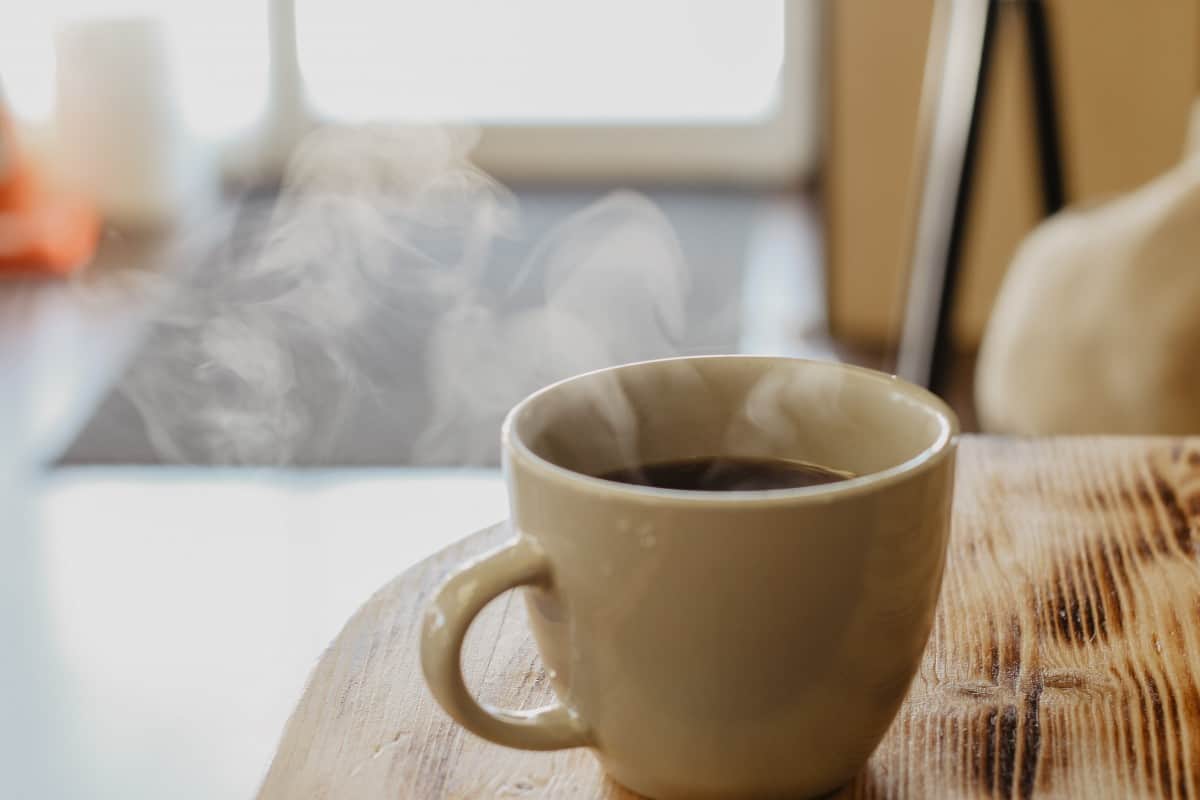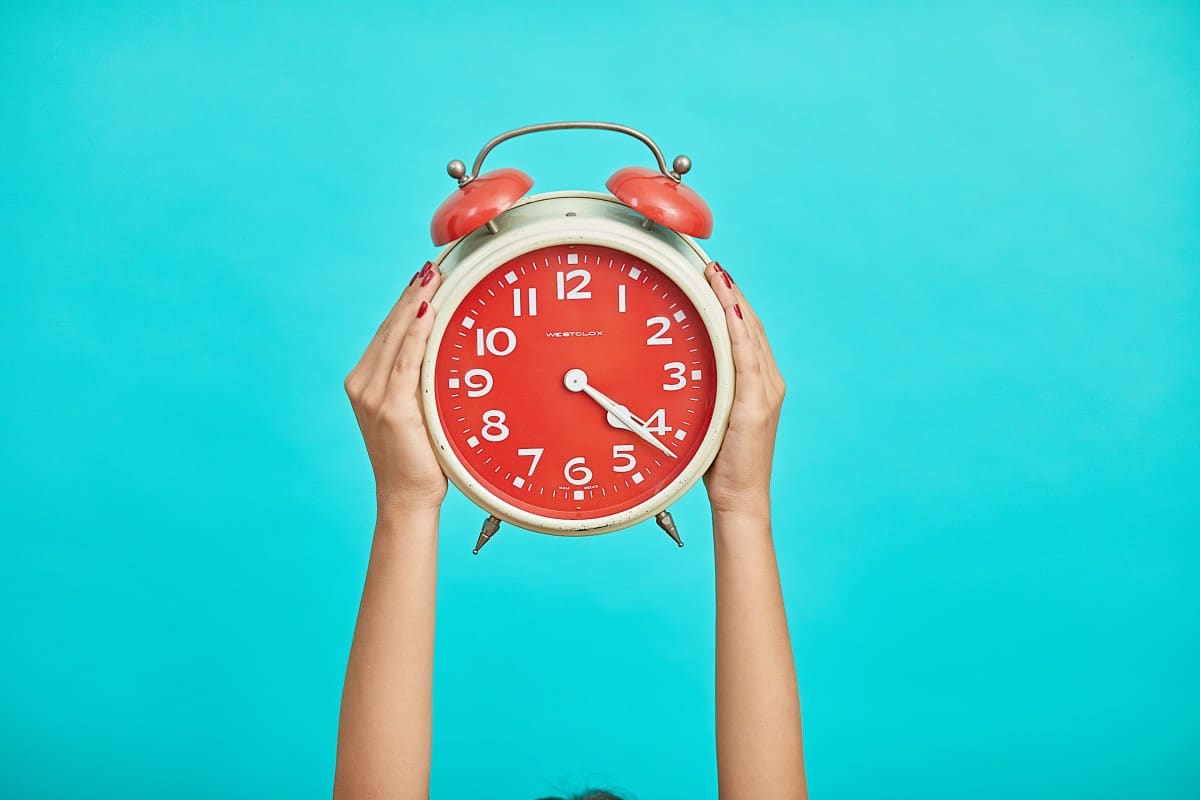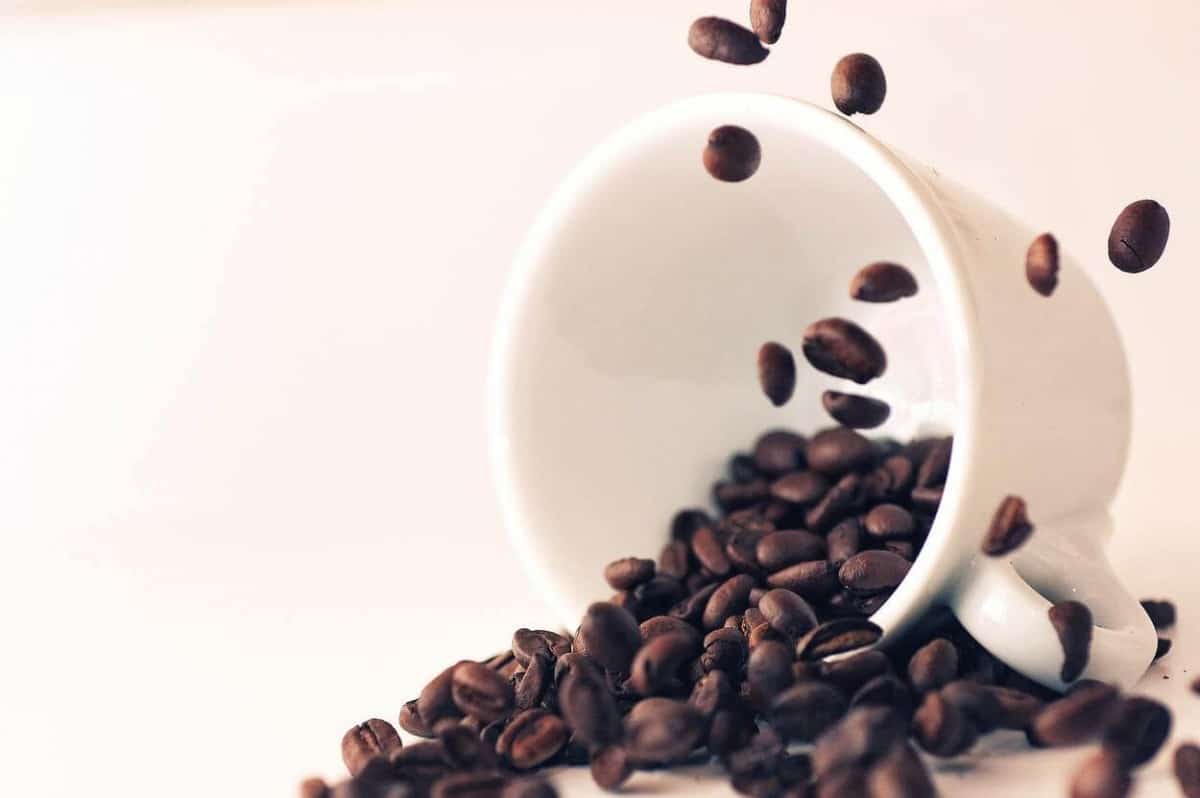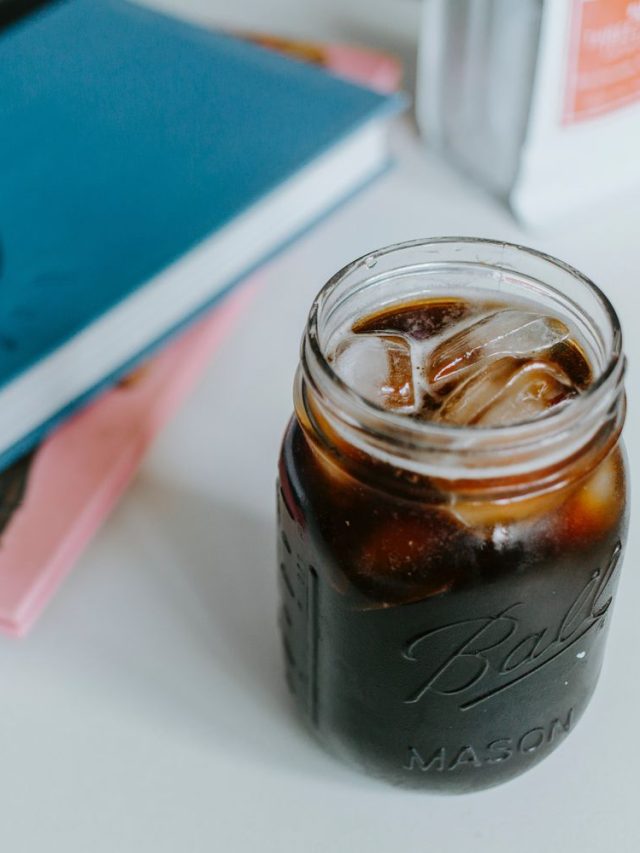Coffee is undoubtedly the most convenient source of energy fix for millions of people worldwide. Even if you aren’t a habitual drinker, you can’t deny the appetizing effects of coffee on your body and mind.
Packed with health benefits and better physical endurance, coffee provides your body with a powerful boost of energy. The energizing effect from coffee can last depending on how well the caffeine is being absorbed in your bloodstream.
So, how long does it take caffeine to kick in?
The immediate kick from coffee starts within 15 minutes of caffeine ingestion from the drink. Depending upon the sensitivity and tolerance capacity of the drinker, the peak level can kick between 15 to 2 hours of consumption. However, caffeine stays in your system for up to 12 hours.
The following sections will help you in getting a better idea regarding the factor.
So let’s get started!
Does Coffee Show Its Effects Instantly?

Yes, you may get the effect of coffee instantly due to the placebo effect. However, the overall energy jolting effect somehow takes 45 minutes to show its best performance.
The immediate effect that you get after having coffee is the instant rush that you feel. This makes you alert and more energetic. After 10-15 minutes, the caffeine absorbs better in your bloodstream and gives a more satisfying energy fix.
The mechanism of adenosine-receptors in your system starts within 15 to 30 minutes and puts you in a better mood after a while.
However, having too much coffee in a go may impact your health by triggering caffeine overdose and withdrawal symptoms.
These are:
- Headache
- Nausea
- Vomiting
- Insomnia
- Caffeine allergy
- Anxiety
- Irregular heart pace
To get the instant effect don’t overdo yourself with the drink. No matter how much you’re having, an intake beyond the recommended quantity will come with unwanted side effects.
The US Food and Drug Administration suggests keeping the caffeine intake within 400 milligrams per day. Saying this, I’d personally recommend watching out for the cups of coffee you’re consuming in a day.
How Long Does it Take to Absorb Caffeine?
After consuming coffee, the caffeine is absorbed within about 45 minutes into the bloodstream.
The immediate effect can be felt within the first 15 minutes as the caffeine starts to absorb freely. The peak hour of caffeine is generally between 15 minutes to 2 hours depending upon the metabolism.
Several factors may be responsible for the time taken by the body to absorb the caffeine. People with low tolerance tend to take more time to metabolize caffeine and this is why they feel the jerks for a longer period.
People who smoke can metabolize faster than normal people whereas pregnant women tend to have a slow breakdown of caffeine.
In the end, since the caffeine is absorbed via the gastrointestinal system so the absorption process may vary among different individuals.
Does Coffee Hit Harder On An Empty Stomach?
Drinking coffee on empty stomach is fine, but it isn’t recommended since it may cause digestive issues. You can read my article on how coffee can affect our stomachs if you’re interested.
The digestive and intestinal functions vary among individuals. Some research has shown that coffee can stimulate your stomach acid and cause inflammation there.
In many people, it may worsen the symptoms of gut disorders and cause heartburn.
The caffeine in your coffee may also trigger the symptoms of :
- Ulcers
- Indigestion
- Irritable Bowel Syndrome (IBS)
- Acid Reflux
- Nausea
The symptoms can worsen on an empty stomach since there’s no food present to prevent the acid from affecting the stomach lining in your digestive system. However, there isn’t any strong evidence to prove this font.
Some people are sensitive to coffee so they experience the signs of Gastroesophageal Reflux Disease (GERD) easily compared to others. If you’re experiencing digestive issues while drinking coffee on empty stomach, consider adjusting your intake with other meals. Moreover, coffee isn’t a nutritious meal to fill up your empty stomach with.
It’s important to pay attention to how your body is reacting to the consumption and it’s wise to have any food before having the beverage.
How Long Does the Effect of Caffeine Last?

Generally, it stays in your system for about 6-12 hours. However, it may stay for over 12 hours or more to completely flush from your system.
The effectiveness of caffeine certainly depends on the metabolism of your body.
The boosting effect however diminishes as the half-life of caffeine passes. That is, after 5 -6 hours you will lose the boosting effect of coffee on your body.
For hypersensitive people, it takes more time to metabolize caffeine. Such people may feel the effect of caffeine for a longer period.
Also, the time duration for caffeine will depend on the coffee variety you’re consuming. Varieties with high caffeine content naturally contain prolonged boosting effects.
Let’s have a look over the caffeine content of some popular coffee varieties:
| Coffee Type | Serving Size | Caffeine Content (on average) |
| Drip Coffee | 8 ounce | 70-140 mg |
| Mocha | 8-12 ounce | 80-152 mg |
| Americano | 8 ounce | 80-120 mg |
| Cold Brew | 8 ounce | 150-200 mg |
| Latte | 8-12 ounce | 63-126 mg |
| Red Eye | 8 ounce | 160 mg |
So how long the effect of caffeine will last depend on the caffeine present in the type of coffee consumed.
If you are ingesting caffeine on regular basis, you might form an increased tolerance over time. This may result in fast metabolism of caffeine and the effect may go away quickly, craving for more.
How Long Does Coffee Keep You Awake?

To what extent the coffee keeps you awake will depend on the caffeine content present in the drink.
Your body naturally takes more than 4 to 5 hours to eliminate the half effect of caffeine and the other half can remain in your body for a long period depending on the metabolism.
In keeping you awake, caffeine reduces the magnitude of total time sleep and causes disruptive effects on your sleeping patterns.
So if you’re having your cup of joe at midnight, it will keep the boosting effect at least up to 4 to 5 a.m. I’d personally recommend keeping the intake between 50 to 200 mg.
To be honest, more than this isn’t required as this quantity of caffeine is enough to do the job. Moreover, caffeine can also be found in chocolates, ice creams, candies, and sodas. You better keep a watch on this junk consumption to avoid the unnecessary headache to sleep.
How Do You Know Whether Caffeine Is Working Or Not?
If you get the boosting sensation within 10 to 15 minutes of coffee consumption, then the caffeine is working.
The peak caffeine concentration occurs generally after 45 minutes, giving you the desired jolt for the next 1 to 2 hours.
Caffeine is a central nervous stimulant. It reaches the brain and exhibits the most noticeable effect which is alertness. The instant alertness is provided within 15 minutes and you’ll start to feel more awake throughout this period.
Caffeine does this by increasing energy metabolism throughout the brain and reducing cerebral blood flow. This induces relative hypoperfusion and activates the noradrenaline neurons. This effect starts to make you more focused and you’ll feel the perks of your cup of joe.
This is why caffeine is widely used as an ingredient in medications or supplements to treat headaches, fatigue, and migraines.
Can You Flush Caffeine Out Of Your System?
You can’t flush caffeine out of your system on your own. Nothing much can be done to flush the caffeine out of your body.
The effect of caffeine is evident within 45 minutes of consumption. Depending on the caffeine quantity, it may stay in your system for 6-12 hours.
People with fast metabolism may flush the caffeine system faster than other people. Normally it takes approximately 10 hours for caffeine to flush completely out of your system.
Although there is no probable quick fix to flush the stimulant, some activities can help you in relieving the withdrawal effect:
- Drink an adequate amount of water
- Consume healthy fluids to clean your system
- Take a moderate walk
- Try to relieve your stress or meditate
- Take a quick nap
- Eat fiber-riched food like vegetables, whole grain, green leaves, lentils etc
When Does Coffee Wear Off?
Generally, after caffeine’s halftime i.e 5-6 hours, the effect of coffee wears off. However, if you have consumed coffee varieties with high doses of caffeine such as Taft Coffee or Black Label Brewed Coffee then it may take considerably more time to expel from your system.
The answer is relative as the timing will depend on:
- Doses of caffeine ingested
- Type of coffee variety
- Body’s metabolism
- Part of the day
You’ll surely feel the most energized around the first 30-45 minutes and a few hours more. After that, the caffeine gradually wears off making the effect of coffee less potent.
Sensitive people tend to hold the stimulant more than normal people. Also, drinking coffee during bedtime makes the jolt more intense as you don’t engage in physical activity during that period and isn’t burning extra calories.
How Can Coffee Affect Your Body’s Clock?

The most obvious effect of caffeine on your body’s clock is that it makes you stay awake for an irregular period, disrupting the required amount of sleep.
The caffeine in coffee is indeed a type of drug that promotes alertness for a long period depending on the doses ingested. As already mentioned above, a significant dose of caffeine may stay in your system for about 9 to 12 hours. Even if you’re considering the half-life of caffeine, it’s about 5 hours which is a long period as well.
Even if the drink gives you a boost instantly, the after-effects aren’t flushed away easily.
This study on the Effects of caffeine on the human circadian clock in vivo and in vitro explains how caffeine can delay the regular timing of the body clock. Indeed, the study revealed that caffeine can affect circadian timekeeping in human cells.
Another study from the Journal of Clinical Sleep Medicine revealed that having caffeine 6 hours before bedtime can have disruptive effects on the amount of sleep and reduce the total sleeping time.
This makes your body craving for a good amount of rest at irregular time slots. The whole lack of sleep and rest may keep your nervous system excited for the next cup of joe.
How Long Do The Signs of Caffeine Overdose Stay In Your System?
Depending upon the rate of metabolism, the caffeine overdose can stay in your system for 5-6 hours and even up to 12 hours or more.
Since the rate of metabolism differs among people, it’s quite relative. The average half-life of caffeine is about 5 hours and keeping in mind that that duration is an average number that may vary among individuals.
Habitual drinkers tend to metabolize faster and this is why caffeine overdose doesn’t particularly affect them. They can easily get rid of the effects of caffeine and take lesser time to absorb it. They are also the ones that experience the caffeine “crash”.
Moreover, how long the signs of caffeine overdose stay in your system will depend on genetics, underlying medical condition, supplements are taken, lifestyle habits, and age.
Bottomline
In short, the effects of coffee can be felt soon within 15 minutes. This instant rush or uplift of mood if you may, is because of the presence of caffeine.
Since different bodies metabolize caffeine differently, the total time may vary and the blood peak hour may differ.
If you’re in a sudden rush to get an instant boost, the coffee can help you with the desired jolt.
However since the stimulant comes with adverse side effects, don’t go overboard with the intake. Try to keep the caffeine amount within 50-100 milligrams per day since this is enough for a healthy boost.
Other Articles
- How Much Caffeine Does Coffee Contain? (Shocking)
- Does Coffee Give You Constipation? (Answers Discussed)
- Does Coffee Give You Acid Reflux? (Revealed)
Contents
- 1 Does Coffee Show Its Effects Instantly?
- 2 How Long Does it Take to Absorb Caffeine?
- 3 Does Coffee Hit Harder On An Empty Stomach?
- 4 How Long Does the Effect of Caffeine Last?
- 5 How Long Does Coffee Keep You Awake?
- 6 How Do You Know Whether Caffeine Is Working Or Not?
- 7 Can You Flush Caffeine Out Of Your System?
- 8 When Does Coffee Wear Off?
- 9 How Can Coffee Affect Your Body’s Clock?
- 10 How Long Do The Signs of Caffeine Overdose Stay In Your System?
- 11 Bottomline
- 12 Other Articles


